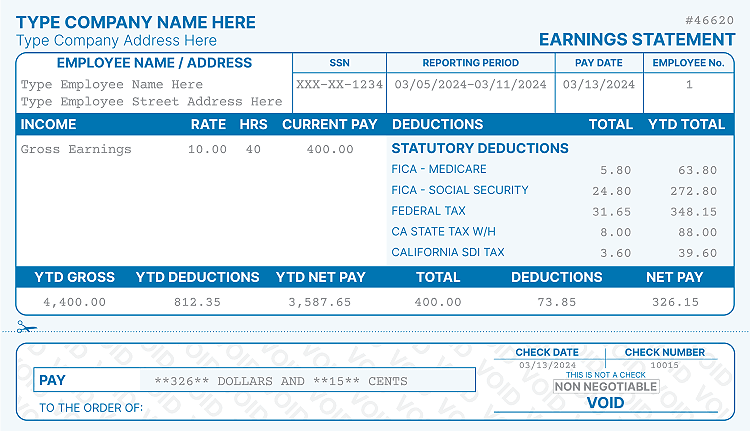11 Types of Employment Contracts to Know (A Useful Guide)
- Home
- Blog
- Employment
- 11 Types of Employment Contracts to Know (A Useful Guide)
Understanding the various types of employment contracts is essential for both employers and employees. These contracts not only define the nature of the job and the obligations of both parties but also significantly impact an individual's work-life balance, career trajectory, and financial stability.
This guide delves into 11 common types of employment contracts, providing detailed insights into each one. Whether you're entering the workforce, considering a career change, or managing a team, this guide will equip you with the knowledge to make informed decisions in the dynamic world of work.

1. Full-Time Employment Contracts: The Backbone of Stability
Full-time employment contracts represent the most common employment arrangement. These contracts usually define a standard workweek, typically 35-40 hours, and offer employees a consistent schedule and income.
Full-time roles often include a range of benefits like health insurance, retirement plans, paid vacations, and sick leaves. Such contracts provide a sense of job security and career progression, making them highly sought after. You can also get verification of employment if needed in any official process.
Full-time employees are crucial for employers as they maintain the core workforce and contribute significantly to the company's culture and ongoing projects. However, this traditional employment model may offer less flexibility than other contract types, which can be a drawback for those seeking a better work-life balance.
2. Part-Time Employment Contracts: Flexibility and Balance
Part-time employment contracts are designed for individuals who cannot commit to a full-time schedule. These contracts typically involve working fewer hours than a standard full-time role, often varying weekly.
Part-time work is particularly appealing to students, parents, or those with other personal commitments, as it provides greater flexibility and work-life balance. However, while part-time employees may enjoy the same hourly wages and working conditions as full-timers, they often receive reduced benefits. This can include limited or no health insurance, payroll stubs, reduced retirement benefits, and fewer paid leave days.
Employers benefit from part-time contracts by having a flexible workforce that can be adjusted according to business needs, which is particularly useful for handling fluctuating workloads.
3. Fixed-Term Contracts: Clear End Dates
Fixed-term or temporary contracts are employment agreements with a specific end date. These are commonly used for seasonal work, project-based assignments, maternity leave cover, or other temporary needs of an organization.
The duration of these contracts can vary from a few weeks to several years, depending on the role's requirements. Employees on fixed-term contracts often enjoy similar benefits as permanent staff, such as pro-rata holiday entitlement and sometimes health benefits.
However, the transient nature of these contracts can lead to a lack of long-term job security and career uncertainty. Employers find fixed-term contracts useful for managing short-term staffing needs without committing to permanent employment, allowing for flexibility in workforce management.
4. Zero Hours Contracts: Ultimate Flexibility
Zero-hours contracts provide maximum flexibility for both employers and employees. Under these contracts, employers are not obliged to provide regular work hours, and employees are not required to accept all work offered. This arrangement allows employees to work around other commitments, such as studies or family obligations.
However, the lack of guaranteed hours can lead to income instability and difficulty in planning finances. There isn't any fixed amount for the pay stub. Zero-hours contracts are often criticized for their potential exploitation and the lack of employment benefits like sick pay and holiday entitlement.
Employers benefit from the ability to adjust their labor force according to immediate business needs without the financial commitment of regular salaries.
5. Freelance Contracts: Self-Employment Freedom
Freelance contracts cater to self-employed individuals who provide services to clients or companies. Freelancers enjoy high autonomy, choosing their work hours, clients, and work environment. This type of contract is common in creative industries, consulting, and IT.
Freelancers handle their own taxes, insurance, and retirement planning, which requires a good understanding of business management. The main challenge for freelancers is the lack of job security and fluctuating income, as work can be project-based and client-dependent.
On the upside, freelancing can offer higher income potential and the freedom to work on a variety of projects. Employers benefit from hiring freelancers for specialized tasks without the overhead costs associated with full-time employees.
Need to Know: Self-Employed Pay Stub As A Freelance Proof Of Income
6. Consultancy Contracts: Expertise on Demand
Consultancy contracts are used when organizations require specialized knowledge or skills that their current staff does not possess. Consultants are typically experienced professionals who offer expertise to solve specific problems or provide strategic insights. These contracts can vary in length, from short-term projects to longer engagements.
Consultants enjoy the freedom of choosing their clients and projects but lack full-time employees' employment benefits and job security. The nature of consultancy work often requires balancing multiple clients and maintaining a constant flow of engagements to ensure a steady income. For companies, hiring consultants is a cost-effective way to access specialized skills without the commitment of a permanent hire.
7. Internship Contracts: Learning and Development
Internship contracts are designed primarily for educational purposes, offering practical experience in a particular field of study. These positions are usually temporary, ranging from a few weeks to several months, and are popular among students or recent graduates.
Internships can be paid or unpaid, depending on the industry and the nature of the work. The primary focus of internships is on learning and skill development, providing a valuable stepping stone to full-time employment.
However, interns might face challenges such as low (or no) pay and a lack of job security post-internship. Employers benefit from internships by identifying potential future employees and adding fresh perspectives and new ideas to their teams.
8. Apprenticeship Contracts: Earn While You Learn
Apprenticeship contracts combine practical work experience with formal training, allowing individuals to earn while they learn. These contracts are common in trades, crafts, and certain technical fields. A company employs apprentices who typically work under experienced staff's supervision while attending educational courses.
Apprenticeships can last several years, leading to a professional qualification or certification. While apprentices earn less than qualified employees, they gain valuable hands-on experience and skills. Employers benefit from developing a skilled workforce tailored to their specific needs and often use apprenticeships as a tool for workforce succession planning.
9. Agency Contracts: Flexible Work Arrangements
Agency contracts involve a third-party employment agency that connects workers with temporary job assignments. These contracts are beneficial for individuals seeking flexible work or a variety of short-term experiences.
Agency workers can be quickly placed in different roles, providing an opportunity to gain diverse experience. However, they may face uncertainty in job stability and often receive fewer benefits than permanent employees.
Employers use agencies to fill short-term staffing gaps without the complexities of directly managing employment contracts. This arrangement offers businesses flexibility in managing workforce levels to meet changing demands.
10. Project-Based Contracts: Task-Specific Employment
Project-based contracts are agreements where employment is tied to the completion of a specific project. Common in industries like construction, IT, and consulting, these contracts define the scope, timeline, and deliverables of the work to be done.
Employees on project-based contracts often have specialized skills suited to the project's requirements. While these contracts can offer competitive pay and the opportunity to work on interesting projects, they do not provide long-term job security or employment benefits.
Employers benefit from this arrangement by having the right skills for the project duration without the commitment of permanent staffing.
11. Seasonal Contracts: Employment for Peak Times
Seasonal contracts are used to manage workforce needs during peak periods, such as holiday seasons in retail or tourism. These contracts are temporary and typically last for the duration of the season. Seasonal workers are often hired to handle increased customer demand, and the work can be fast-paced and demanding.
While seasonal employment provides opportunities for extra income or to gain work experience, it often lacks permanent roles' benefits and job security. Employers benefit from the flexibility of scaling their workforce up or down according to seasonal business fluctuations.
FAQs:
What is the key distinction between full-time and part-time employment contracts?
A: Full-time contracts involve a standard workweek, often with comprehensive benefits like health insurance and paid leave. They provide job stability and career progression. Part-time contracts require fewer working hours, offering flexibility and work-life balance, but typically come with fewer benefits and less job security.
Q: How are zero-hours contracts different from freelance contracts?
A: Zero-hours contracts offer no guaranteed hours, allowing employees to accept work as needed, leading to income fluctuation. Freelance contracts involve self-employed individuals choosing their projects and clients, with greater autonomy but also the responsibility for their own taxes and benefits.
Q: Do fixed-term contracts offer the same benefits as permanent contracts?
A: Fixed-term contract employees often have benefits similar to permanent employees, such as holiday pay, but this varies by employer. While providing many workplace rights, these contracts do not guarantee job security beyond their specified duration.
Q: What are the advantages for employers using agency contracts?
A: Agency contracts provide employers with workforce flexibility and save on recruitment time. They allow for easy adjustment of staff numbers according to business needs without the administrative burden of direct employment.
Q: Can completing an apprenticeship lead to permanent employment?
A: Apprenticeships frequently lead to permanent employment opportunities. They blend practical work experience with education, equipping apprentices with relevant skills and qualifications attractive to employers, increasing the likelihood of a permanent job offer upon completion.
Q: What defines a project-based employment contract?
A: Project-based contracts are specifically tied to the duration of a project, offering specialized work with competitive pay but no long-term job security or standard benefits. Employers benefit by having the necessary skills for a project's lifespan without the commitment to permanent staffing.
Final Thoughts:
Understanding these 11 employment contract types empowers employees and employers to make informed decisions. Each contract type has its advantages and challenges, catering to different needs and circumstances in the evolving world of work. By comprehending the nuances of these contracts, you can better navigate your career path or manage your workforce effectively.
Moreover, if you want to keep track of your employees' income, no which type of contract you have with them, real check stubs paystub generator are your go-to platform!
Kristen Larson is a payroll specialist with over 10 years of experience in the field. She received her Bachelor's degree in Business Administration from the University of Minnesota. Kristen has dedicated her career to helping organizations effectively manage their payroll processes with Real Check Stubs.

